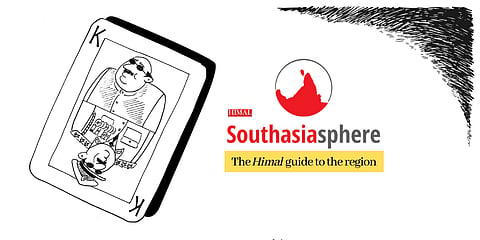Illustration by Gihan de Chickera.
Podcasts
Southasiasphere: Issue #4
Militarisation of COVID response, the looming refugee crisis, and Nepal’s PM under pressure.
This week in Southasia:
Civil-military relations during COVID-19
The looming refugee crisis
Nepal's PM under pressure
CROSSBORDER
Military creep
As is often the case with crises and disruptions, COVID-19 has revealed the outsized role that militaries play in Southasia, particularly during emergencies.

